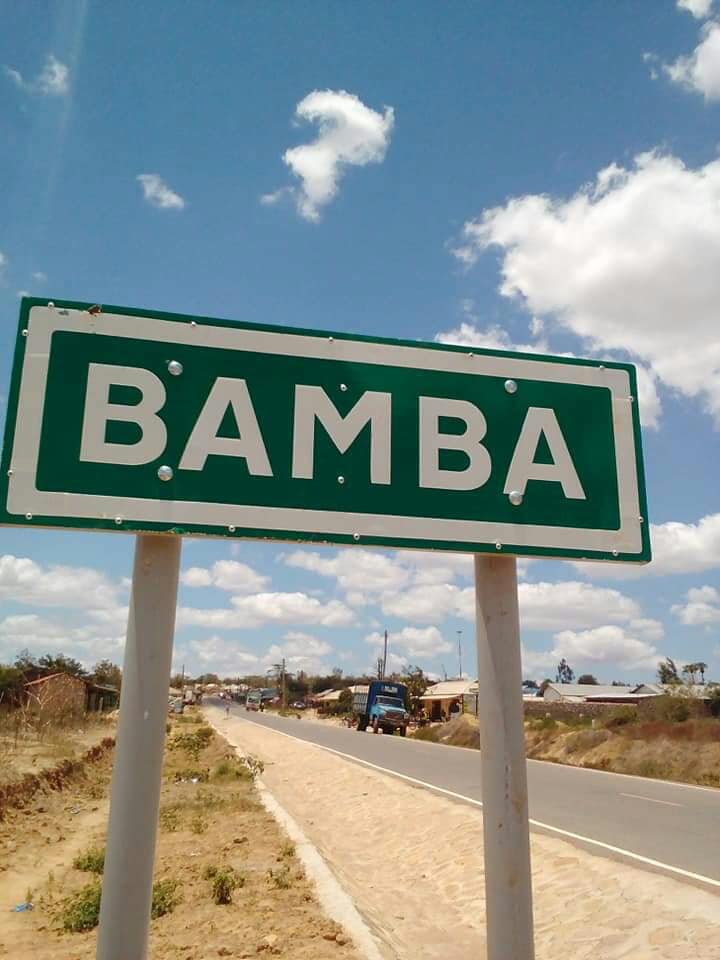In 2017 during his State of the Nation address in Parliament, President Uhuru Kenyatta provided the nation with a lighthearted moment, singing ‘Safari ya Bamba ni Machero’. The internet immediately went abuzz. For many Kenyans it was a throwback to their school days, singing the Giriama folk song in Music classes and music and drama festivals. However, many do not get the complete gist of how the song came to be, though the President did give a small glimpse. Bamba residents were going to get a tamarcked road for the first time in 55 years since the country’s independence, the 51 km Mariakani-Bamba Road. He went on to suggest that the famous song should be rephrased to ‘Safari ya Bamba ni rero’, a testament to the achievement of his tenure. ‘Safari ya Bamba ni machero’ means the journey to Bamba is tomorrow, ‘Safari ya Bamba ni rero’ means the journey to Bamba is today. He was literally alluding that a journey that used to be preplanned because it was long and torturous was now going to be a smooth one.

The song itself was composed by Stephen Ngumbao, in 1959. Then a Music teacher at Ribe Teachers’ Training College. It must be what contributed to the song’s popularity, it was a hit with the trainee teachers who spread the song to wherever they were posted. To physically place the song’s birthplace, Ribe Teachers’ Training College is what is presently Ribe Girls’ Secondary School. The Teachers’ Training College was amalgamated together with Coast Teachers’ Training College (Mombasa), Bura Teachers’ Training College (Taita Taveta) and Mutune Teachers’ Training College (Kitui) to form what is presently Shanzu Teachers’ College.
Bamba’s hardship levels were legendary, for many years. Oral literature has informed much of my work to date, my research on ‘Safari ya Bamba ni machero’ is one example. In the old days, evenings and nights used to be spent around a lit fire, where fables and tales of great men and women were passed on from the old to the next generations. The tales would go on till the fire died down and everyone went to sleep. This was common place almost everywhere across the country, but in Kilifi one particular event usually disrupted the usual storytelling schedule, Bamba’s market day. On the evening before going to Bamba, everyone who would be on the journey would be reminded of the difficult journey that lay in wait the following day, thus the need to sleep early for the journey beginning at dusk.
On such evenings, a meal called chinolo or mkate wa mabumbunda was prepared to be carried by the travellers. Basically banana bread, with a twist. Ripe bananas whipped into a paste together with maize flour, covered in banana leaves and left to simmer in a pot. The final result was a hardened purple-ish dish, close to slept-over ugali in texture, a filling meal fit for a long journey. There were no stopovers or quenching spots on the way to remote Bamba. You need only search Bamba on the internet to know it is in Ganze, one of the country’s most impoverished constituencies and that is now, imagine how it was back then. It was just you, your chinolo, a water gourd and the scorching sun. A story is told of how one government officer was posted to Bamba some decades ago. She arrived in a government landrover that had her things packed at the back. She took one look at the surrounding area and her would-be living quarters then told the driver not to offload anything, she decided that was not her ‘portion’ (to put things in religious lingo) and went back with him, ready to resign. That was Bamba.
All these things must have played at the back of Mwalimu Stephen Ngumbao’s mind to create a folk song for the ages. From what I gather, Mwalimu passed on. As a nation we are grateful for his talents and composition. ‘Safari ya Bamba’ was featured as a soundtrack in a 1996 American film, The Ghost and the Darkness, a fictionalized account of the Tsavo Man-Eaters story, starring acclaimed actors Michael Douglas and Val Kilmer. I would imagine Mwalimu Stephen Ngumbao’s family did not get the rightful recognition for it.
My maternal Uncle, Albert Chaurembo Mumba, added to what I gathered about the song by providing information on Mwalimu Ngumbao. He had this to say, “Mwalimu Ngumbao joined St. John’s School, Kaloleni in 1955, I was in standard 8 that year. He was a fantastic music teacher and composer. He trained at Ribe Teachers’ Training College around 1953/1954 (where he later went on to teach after St. John’s, Kaloleni). Apart from music, Mwalimu Ngumbao excelled in football, he was a very good goalkeeper! For reasons I cannot remember how he earned the nickname ‘Coca-Cola’. At St. John’s Kaloleni we had 2 renowned music teachers, the late Reuben Kombe and the late Mwalimu Ngumbao aka Coca-Cola. Most of us students wished to be in Coca-Cola’s choir for his charismatic nature. St. John’s Kaloleni used to win trophies in the then yearly singing festivals which used to be held at Tononoka Social Hall, Mombasa. This success was down to the contributions of Mwalimu Reuben Kombe and Mwalimu Stephen ‘Coca-Cola Ngumbao” – Albert Chaurembo Mumba.
SUPPORT: We are a non-funded entity kept alive solely by our readers’ thirst for the undocumented and not adequately documented aspects of our past. The logistics of getting these stories can sometimes be a challenge. We would appreciate your support. To support Pwani Tribune’s history and culture research plus content creation…M-PESA till number: 8627478 Contact: +254726860693


